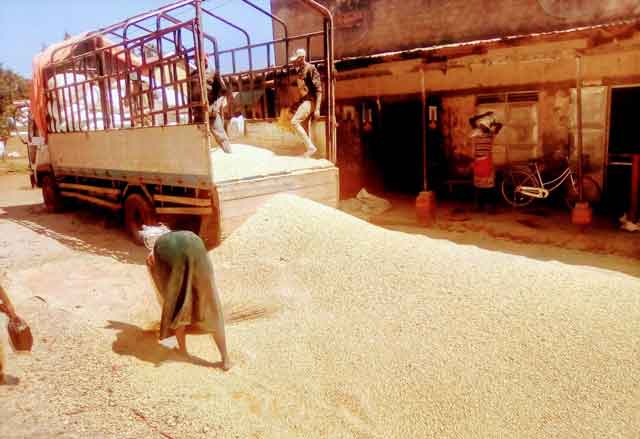
Busia, Uganda | THE INDEPENDENT | The difficulty to access Uganda’s farm produce by regional traders that has been pushing grain prices down is being worsened by the newly instituted COVID-19 testing fee, raising the anxiety of traders who have been relying on customers from neighbouring countries.
Drivers and other persons entering the country are required to pay for the cost recovery fee of 240,000 Shillings for the Covid-19 test
In Busia for instance, the price of maize has fallen from 800 Shillings a kilogram to 600 Shillings, a kilogram of beans has dropped more than half to 1,700 from 4,000 Shillings, depending on the type of beans. A Kilogram of Soybeans is at 1,700 from 2,500 Shillings, a kilogram of Sorghum goes for 650, from 800 Shillings, Millet from 2,300 Shillings to between 1,700 and 1800 Shillings.
According to the traders, the situation has continued to worsen since their clients from neighbouring countries like Kenya and Tanzania do not cross to the country to transact businesses due to stringent conditions at the border points. They say each trader who crosses to the country is charged 250,000 Shillings for testing for coronavirus which is costly to them and this has scared them away.
Bruhan Musisi Sowed, the vice chairman produce dealers said that previously they were able to export a total of 5,800 tons of produce a day but since the outbreak of covid-19 pandemic they sell less than 500 tonnages in a day.
He noted that some of their clients from neighbouring countries were abiding with covid-19 screening conditions but since the ministry of health added another condition to charge coronavirus testing fee, foreign clients are no longer coming in for business.
Samuel Kwefuga, another trader dealing in maize says that they would have supplied their produce in Tanzania but customers can’t cross due to tough conditions at the border.
Kayiti Mansuli, a beans trader expressed worry of food shortage because most of the traders have left the business. He said the closure of schools which were their biggest customers has also impacted them.
Grace Alungata who sells both Millet and Sorghum says that even their clients from Teso Sub-region are no longer coming due to high transport costs.
********
URN
 The Independent Uganda: You get the Truth we Pay the Price
The Independent Uganda: You get the Truth we Pay the Price


